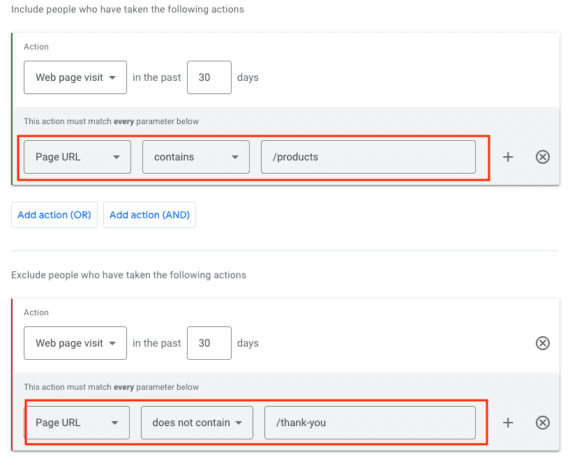
Financial technology platform Wildfire Systems launched a hosted and fully managed branded shopping portal in March to complement its existing e-commerce platform. The portal features cashback, coupons, personalized deals, and retail media promotions.
Wildfire’s shopping portal enables banks, card issuers, rewards services, and technology providers to launch branded, desktop, and mobile-optimized shopping sites rapidly. These sites can be stand-alone or complement multi-faceted shopping rewards programs with options for browser extensions, email offers, and in-app promotions.
The turnkey solution powers loyalty and reward programs and shopping companions that incorporate intelligence based on previous shopping behaviors to provide a highly relevant, friction-free buying experience. It delivers consumers personalized offers for products and merchants, drawing from recent shopping behavior and highlighting the deals most likely to lead to purchases.
According to the 2024 Marigold Global Consumer Trends Index, 74% of respondents are likelier to stay loyal to a brand that provides offers and promotions. Wildfire’s hosted shopping portal highlights the value of shopping rewards programs for its clients. It strengthens customer engagement by giving customers a centralized place to find the best available deals.
“With this launch, we’re delivering an in-demand, consumer-friendly solution that engages shoppers at the start of their journey without burdening our clients’ IT teams. Our commitment to enhancing the shopping experience at every stage continues to set us apart as the leader in white-label rewards programs,” said Jordan Glazier, CEO of Wildfire Systems.
New Tools Strengthen Loyalty Programs
Table of Contents
In February, Wildfire added more enhancements to its platform. One, the Benefits & Loyalty Amplifier (BLAM), addresses a common challenge: many consumers fail to fully take advantage of their credit card benefits due to a lack of awareness. As a result, banks, card issuers, and payment providers are left with underutilized loyalty offerings and value-added services.
Another is the Wildfire Commerce Network (WCN). It enables advertisers to promote offers across Wildfire’s diverse client base of financial services, rewards, and technology partners to reach customers actively considering purchases.
“Wildfire Commerce Network is the foundation of a distributed media network that, unlike a retail media network, can operate beyond specific retailer sites to deliver the right message at the right moment and drive sales and customer acquisition for brands,” said Glazier.
According to an eMarketer report, retail media ad spending in the U.S. surged to $52 billion in 2024, a 19% increase from the prior year, and is projected to exceed $62 billion in 2025. WCN supports this growth for retailers and advertisers by offering a scalable, distributed solution that delivers results.
BLAM offers a direct way to deliver timely, relevant messages to customers. It can also address key bank priorities such as new cardholder acquisition. For example, a shopper browsing a retailer’s site could see a pre-approved offer for a co-branded retailer credit card or receive an offer for a card with a strong dining program while looking at restaurant menus online.
Key loyalty programs and card benefits that BLAM amplifies include upsells to relevant card products, exclusive dining benefits and discounts, card-linked offers from local offline merchants, access to travel-related rewards and services, early access to event tickets, rental car coverage, and extended product warranties.
Wildfire’s shopping portal provides businesses with six distinct benefits. According to Santi Pierini, CEO of performance marketing platform CJ, its innovation and practical solutions can drive value for both publishers and advertisers.
“Shopping portals are a key ingredient for successful performance marketing programs, and Wildfire’s new offering has unlocked those capabilities for publishers,” he told the E-Commerce Times.
White-Label Shopping Expands Retail Access
Any company that rewards its customers can benefit from a shopping portal. Companies can maintain brand loyalty by delivering more value for their customers, and a shopping portal is an excellent way to do just that, noted Tristan Barnum, CMO at Wildfire Systems.
“Our hosted shopping portal is the easiest, most turnkey way to launch a shopping site, housing all the rewards the loyalty program offers. The shopping portal offers an empowering one-stop-shop for customers to select the merchants who can offer them the richest deals,” she told the E-Commerce Times. “It opens up rewards program access to all customers, not just those who install and use a shopping companion browser extension.”
Unlike traditional retail media networks (RMNs), the WCN goes beyond a retail media ad buy that appears at one retailer. WCN ad buys mean advertisers can choose from a variety of placements across a variety of different audiences to customize their exposure and maximize return on ad spend (ROAS), she explained.
Barnum added that advertisers can influence purchase decisions at different stages of the shopping journey, whether their goal is to drive more substantial conversion rates or simply get their brand into the consideration set of a new potential audience. WCN delivers a retail-media-like advertising opportunity without constraining placements to a single retailer’s site.
Wildfire’s platform features:
- Desktop and mobile-optimized accessibility to redeem deals from any web browser without requiring an extension
- Near-zero technical lift by handling all site development, updates, and optimizations
- Seamless company branding configurable to match each client’s look and feel
- Personalized recommendations culled from tailoring the offers to what consumers want most frequently
- Compelling shopping experience from a centralized place to explore merchant offers, savings, and deals
- Advertising revenue resulting from high-impact placements from retail media advertisers that drive high-performance marketing for retailers and brands
Ad Targeting Without PII Improves Relevance
Wildfire’s “privacy-minded” shopping companion components contribute to the effectiveness of advertising delivery due to its inherently personalized experience for shoppers. Barnum explained that the system presents ads based on real-time shopper intent. It delivers an ad tailored to the moment, whether that user is browsing and just beginning the shopping journey or at a checkout page.
“Because Wildfire powers a wide variety of shopping companions, a single ad buy through WCN can reach all of those shoppers, using different shopping companions, all receiving an advertiser’s offer at just the right moment,” she suggested.
It does this, in part, by employing tokenization that allows the shopping portal to send personalized experiences that are not tied to the shopper’s personally identifiable information (PII). Clients authenticate their users as usual and then pass an anonymized token to the shopping portal.
Browsing and purchasing behavior through the shopping portal is captured and attributed back to this token, which Wildfire uses to customize the display of offers and promote specific categories to a user.
Synced Shopping Experience Across Devices
Desktop and mobile synchronization is a critical feature of Wildfire’s evolving retail platform. The process ensures a friction-free experience when handling updates and optimizations across various devices and browsers.
The hosted shopping portal was designed to display nicely on both desktop and mobile environments. Other UI improvements include “ever scroll,” meaning that users can see more offers at once without jumping between pages to view deals.
“Because Wildfire hosts and manages the shopping portal, we oversee the change management process whenever there are updates. Unlike a ‘shipped’ software product, changes happen entirely on Wildfire’s side,” Barnum said.
In addition, Wildfire attributes activity in other components of a rewards program to the same shopper without collecting personally identifying information or PII. So, if the shopping companion browser extension detects more purchases from travel-related merchants, for example, the shopping portal can bubble great travel deals to the top for that same user, she added.





